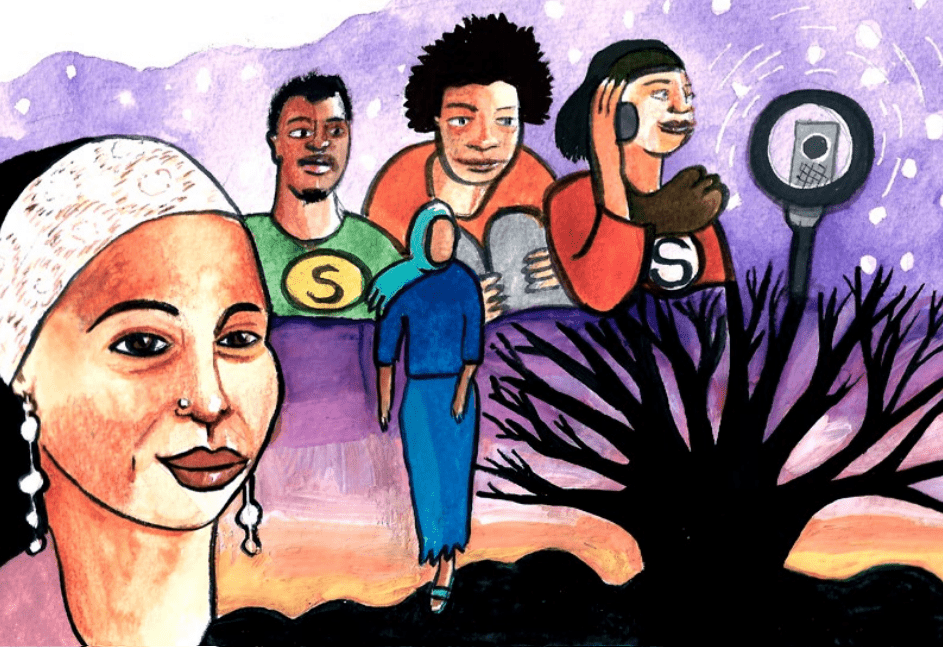Project : Sahel à Egalité : Strengthening good practices and citizen mobilisation in favour of public policies adapted to the reduction of inequalities in the Sahel.
Implementing partners:
- Burkina Faso: the Association of Women Lawyers of Burkina Faso AFJ/BF), Balai Citoyen, the Centre for Applied Study and Research in Public Finance (CERA-FP), the Permanent Secretariat of Non-Governmental Organisations (SPONG)
- Niger: Niger Anti-Corruption Association – Transparency International (ANLC), l’ONG Femmes, Actions et Développement (FAD)
- Sénégal : Forum Civil, La Lumière et l’Organisation Non Gouvernementale Démocratie, Droits Humains, Développement Durable (ONG 3D)
- Tchad: The Centre for Studies and Research on Extractive Industries Governance and Sustainable Development (CERGIED)
- West Africa Region: Africtivistes, Women In Law and Development/ Femme Droit et Développement en Afrique (WiLDAF/FeDDAF), West Africa Civil Society Institute (WACSI)
France: Coordination Sud, Publish What You Pay (PCQVP), the Centre for Development Research and Information (CRID), Sahelian diaspora organisations in France, the Forum of International Migration Solidarity Organisations (FORIM)
Duration: 3 years
Countries: Sahel (Burkina Faso: Centre, North Centre and Sahel regions
- Niger: Maradi region, Tahoua et Tillabéri
- Sénégal: Thiès region, Saint-Louis, Matam, Tambacounda, Kédougou, Ziguinchor and Dakar
- Chad: Lake Chad region
- France: national territory
Objective : Strengthen trust between the state and the population at all levels to reduce inequalities in the Sahel through a new social contract
Activities
- Conducting budget analysis studies in the fields of education, health and social protection;
- Mapping of services and territorial distribution of essential services;
- Capacity building of local authorities on gender-sensitive territorial planning tools and taxation;
- Raising awareness (and popularising) on the importance of implementing the National Social Protection Strategies (NSPS) and other public policies in Chad;
- Advocacy for increased budgets for essential public services;
- Awareness campaigns for access to basic services for women and girls
- conducting studies on the distribution of public expenditure and satisfaction surveys on public expenditure;
- Raising taxpayer awareness and promoting tax compliance;
- Advocating for fair tax reforms within countries and for regional convergence;
- Mapping taxes and tax exemptions in the region;
- Conducting studies on the effectiveness of official development assistance in the Sahel;
- Capacity building to coordinate advocacy efforts with the main donors and creditors invested in the Sahel;
- Conducting advocacy for the availability and accessibility of budget information to the public;
- Capacity building of CSOs, parliamentarians, media and movements on citizen control of the budget and the Finance Act and on budget monitoring;
- Capacity building of public finance institutions for budget transparency;
- Development of studies on existing legal frameworks;
- Capacity building on laws relating to freedom of association, expression and assembly in the target countries;
- Support and/or organisation of civic space advocacy, civil society actors, parliamentarians, media coalitions and other stakeholders and provision of advocacy tools at national and regional level;
- Mapping/Survey on youth and women’s civic participation in the target countries.
- Awareness campaigns on the participation of women and youth in decision-making processes;
- Capacity building of youth and women in leadership and influence;
- Promote the participation of civil society and especially youth and women in the evaluation of the ECOWAS 2020 vision.


